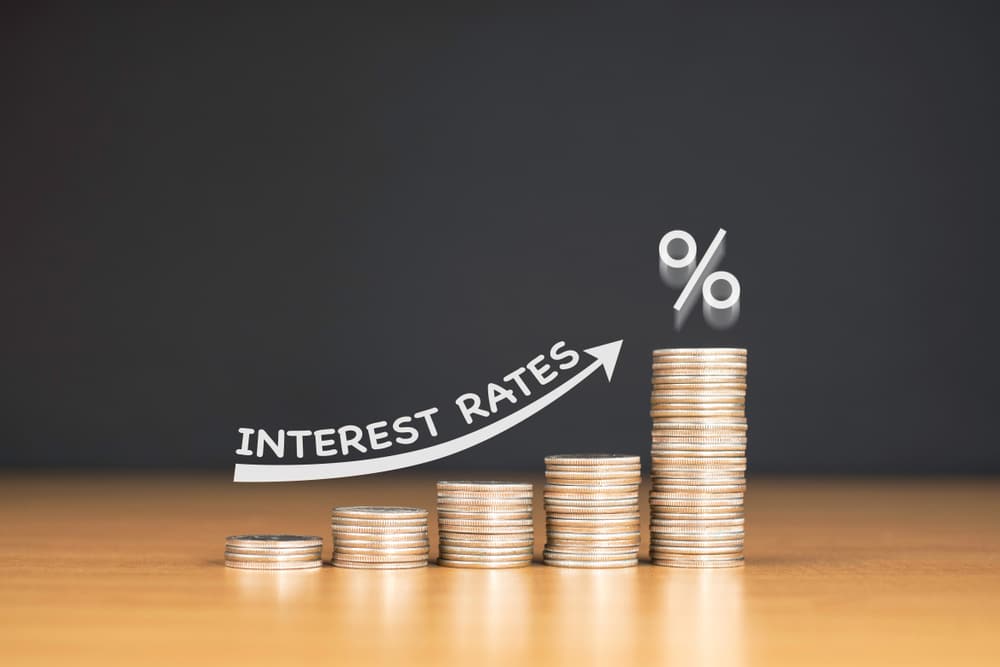
The 3 Golden Rules Of Lending
Lending money to invest in real estate binds property investment together. Without taking on debt or risk, the average person will seldom advance financially in life.
Put simply – without borrowing money, we as investors would be limited and completely stuck.
It’s important that lending is discussed, and investors recognise and understand the best type of investment loans. Here are three very simple rules to follow when borrowing funds for investing:
LEVERAGING SOMEONE ELSE’S MONEY
Can we build an amazing property portfolio while leveraging someone else’s money?
The answer is yes. We as investors can use the bank’s money to grow our wealth. Let’s paint an example.
When an investor goes out and buys a property, they generally borrow around 80 per cent to 95 per cent of the bank’s money.
They’re also using a small amount of their own capital as a deposit and leveraging the rest from the bank. Lending money in the scheme of things is relatively inexpensive.
Right now, cash is cheap with some banks’ lending out money at below three per cent – some even lower! Even interest rates higher than this should not be feared but rather embraced, as the upside benefits far out-weigh the risk.
The key phrase “the only failure is the failure to participate” has been embedded in my mindset and should be shared with all. Once you’re involved, even when you sleep, the market can provide you with profits!
INTEREST ONLY LOANS VS PRINCIPAL AND INTEREST LOANS
If you have the option of principal and interest loans or interest-only loans, then it is always advisable to consider interest-only.
The logic behind this is that your interest-only repayment is always going to be lower than a principal and interest repayment. You have, with the vast majority of home loans, the option of making additional repayments at any time without penalty.
With an interest-only loan you could choose to make the same repayment as if the loan was principal and interest, but you have the option of making a lower repayment if you choose. This allows you to be flexible and manage your portfolio accordingly.
Understand if you select principal and interest at the very beginning when you sign the loan, you will be locked into making the higher repayment.
One of the main reasons lots of investors choose interest-only loans is that when you make additional repayments to reduce your debt, who owns those repayments? The answer is you, the investor! As opposed to when you make additional payments through a principal and interest contract, who owns the principal payment? The answer is the bank!
It’s important that you choose the right loan, so you as an investor can control the process. That’s why having an experienced and knowledgeable finance broker on your team is vital.
SPREAD YOUR RISK WITH VARIOUS LENDERS
Most banks have clauses in their loan documents that entitle them to review any one of the property loans you hold with their bank at any time.
Some property owners can be caught napping, as the banks can ask for additional funds if they believe the property value has decreased.
Alternatively, there are situations where your debt may be too high for what you are now earning, for example, your earning capacity changes with a new employment status.
This clause means the bank is entitled to use equity in any of your other properties, held with the same bank, to ensure they are protected from changes in property values, even if it is not specifically related or attached to the original loan.
In other words, all properties are security for all loans with the same lender, which can severely limit your investing future. The clause is known as the “all monies clause.”
The alternative is to use securitised lenders (non-bank lenders) or to be diverse by using more than one lender.
Therefore, the result is that any funder you have borrowed money from to invest can only use an individual property as security within your property portfolio.
Understand the best way to control the bank loan terms and conditions is to use a new funder every time you invest. It is very important to be in control of your financial future.
Sophisticated borrowers, who want to grow their portfolio without the risk of the lender reviewing their complete financial position every time they apply for funds to buy another property, do not cross securitise their properties unless it is necessary. This is the best way to move forward easily.
HOW TO LEND SMARTER
When it comes to smart investing, lending in itself requires a solid strategy.
The basics listed in this blog are a great start but there are many more ways you can optimise your finance structure for better returns and a stronger portfolio. To learn more, join our free property investing seminar.
Our expert property coaches are exceptional at helping investors build a wealth creation plan that optimises every available opportunity for new and existing investors.
Spaces are limited – register now for the free property investor webinar.
By Sam Saggers
Recent Articles
How To Prepare for a Rise in Interest Rates
Smart property investors know that it’s dangerous to get too comfortable. Real estate is an ever-changing thing. Markets go up, down and plateau – and so do interest rates. The question is, how prepared are you for a Rise in Interest Rates? The key is being ready to use these strategies.
3 Ways a Property Investor Will LOSE Money!
There are many ways you can win big by investing in real estate. Equally, if you lose sight of the basics, you’ll end up losing something much worse – money! No one sets out on their property journey to go backwards financially, so take note of these three common mistakes that investors often make, because if you don’t, it may cost you in the long run. Here are 3 ways an investor can lose money…
An Investor’s Guide to Multi-Income Properties
When it comes to building a booming property portfolio, diversity is key! There are four primary multi-income types that Australian investors can buy at the moment.
Property Cash Flow Basics For Creating Passive Income
Buying real estate is similar to running a business – good performance is derived from your ability to generate cash flow. For a property investor, this means eventually living off the passive income that your real estate generates. Therefore, it is especially important that you map out your ability to build a portfolio that will deliberately achieve this level of success from the get-go.
How Property Investors Can Reduce Tax Down To Zero!
Those who own real estate are subject to many, different kinds of tax. Some tax is unavoidable. Other kinds of tax are legally, 100% avoidable – or at least able to be reduced substantially. With the Victorian government recently announcing a rise in the land tax threshold it’s even more important that property investors know where they can and should minimise the tax they pay.
A Property Investor’s Guide To Depreciation
Every smart property investor knows that to create and maintain a portfolio, we need to have good cash flow. One of the ways we can support this is by using depreciation and tax. But, just like equity, depreciation only works for us if we know how to access and then leverage it.
A Property Investors Guide To Guaranteed Rental Increases
Rent is your weekly or monthly incomes from your property. And it’s an income you don’t work for. It’s the absolute key to good cash flow and passive income, so it’s essential you are able to keep raising your rents at regular intervals. But, what makes it possible for property investors to do this?
The Only Time You Should Sell An Investment Property
The golden rule of property investing is to buy well and NEVER SELL. However, there are always exceptions to the rule… Firstly, let’s look at why you would keep an investment property? If you buy a great piece of real estate, in the right location, it will always create a passive income for you, so there will be no reason to sell it.
House vs Apartment – Which Is Better for Capital Growth?
Many property investors favour one type of property – either apartments or houses. While there are pros and cons to both, which we will discuss here, one of the often forgotten advantages of houses is the investment you’re making not only in the bricks, but also in the land. Land value in itself increases over time, and investment in a piece of land also provides opportunity to renovate, subdivide and develop, all of which lead to greater capital growth.












